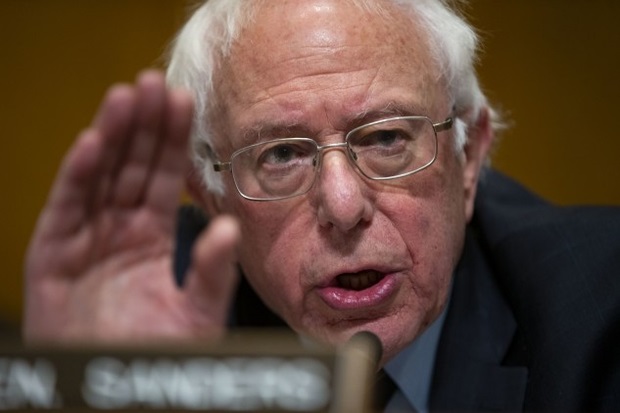Democrats, GOP Fight to Define ‘Medicare for All’ Message
- Democrats to unveil single-payer health plans soon
- Republicans bank on voters turned off if private plans axed
The two most popular proposals for making the federal government the largest health insurer of Americans will be released next week and their details could pay a major role in the 2020 elections.
Sen. Bernie Sanders (I-Vt.), who joined the Democratic presidential nomination contest this week, and Rep. Pramila Jayapal (D-Wash.) are expecting to release their “Medicare for All” bills separately at the end of February. Both see the idea of providing health insurance for every American by effectively replacing most of the private insurance market with a publicly run insurer as an aspiration the Democratic Party should rally around.
Their supporters say Americans are growing increasingly frustrated with the health-care industry and are more willing than ever to embrace the idea. Republicans and health-care industry groups are betting that Americans will reject a single-payer health insurance system after they hear how it’ll disrupt their lives by replacing their current coverage.
Whoever is correct could end up controlling more of the levers of government in 2021.

“If they want Medicare for All then we want to talk about how they’ll pay for it and what that means,” said Rep. Greg Walden (R-Ore.), ranking member of the House Energy and Commerce Committee and two-time chairman of the National Republican Congressional Committee. “We want to hear the details.”
Those who back the Medicare for All plans say Republicans are making a bad bet because Americans will embrace the idea more when they hear what a single-payer offers: cheaper health care.
“Most people like Medicare and think we should all have it,” Rep. Ro Khanna (D-Calif.) said. “Medicare is cheaper and has lower out-of-pocket costs. It’s not an effective line of attack because it’s appealing.”
Democratic Left Playing a Long Game to Get `Medicare for All’
Bills Coming Soon
Jayapal is expected to release her Medicare for All bill next week, which she said builds on Sanders’s legislation, set to come out around the same time. The two measures should be similar, but Jayapal has made changes in hopes of winning the support of more House Democrats.
Jayapal is expected to premiere her bill with nearly as many supporters as it had last Congress, a Democratic House aide said. The bill has had as many as 124 co-sponsors.
Khanna is correct that Medicare for All has polled well among Americans lately, but it’s unclear if those with employer-sponsored plans want to see them go away.
Most Americans, 56 percent, polled said they favor a Medicare for All plan, according to the latest poll by the Kaiser Family Foundation. But the idea also drew the strongest opposition among the various proposals for expanding government’s role in health insurance. Other proposals included Medicare buy-in plans, including public insurance plans that older Americans could buy into and optional government-administered insurance to compete with private plans.
Republicans See Opening
Most insured Americans, 156 million in 2017, get coverage through their employers and that type of coverage has long polled well among Americans, said Ford O’Connell, a political analyst and Republican strategist who has focused on health messaging.
“By putting out bills that end private insurance they’re opening themselves up to attacks that allow Republicans to turn the message around and say ‘now you’re taking away health care,’” O’Connell said. “This could level the playing field.”
Republicans in the House have been pushing Democratic leaders to hold hearings on the measure both to attack fault lines among Democrats and to start their own messaging campaign on the issue.
“We’re going to pull the curtain back on Medicare-for-All so the American people can actually assess it,” Rep. Kevin Brady (R-Texas), ranking member of the Ways and Means Committee, said. Brady too has called for a hearing on the proposal.
The heads of the House Budget and Rules committees have said they’ll hold hearings on Jayapal’s Medicare for All bill.
House Budget Committee John Yarmuth (D-Ky.) has asked the nonpartisan Congressional Budget Office to outline the trade-offs of a single-payer system and said recently he hopes to use that information to fine-tune a bill like Jayapal’s Medicare for All.
To contact the reporter on this story: Alex Ruoff in Washington at aruoff@bgov.com
To contact the editors responsible for this story: Paul Hendrie at phendrie@bgov.com; Robin Meszoly at rmeszoly@bgov.com